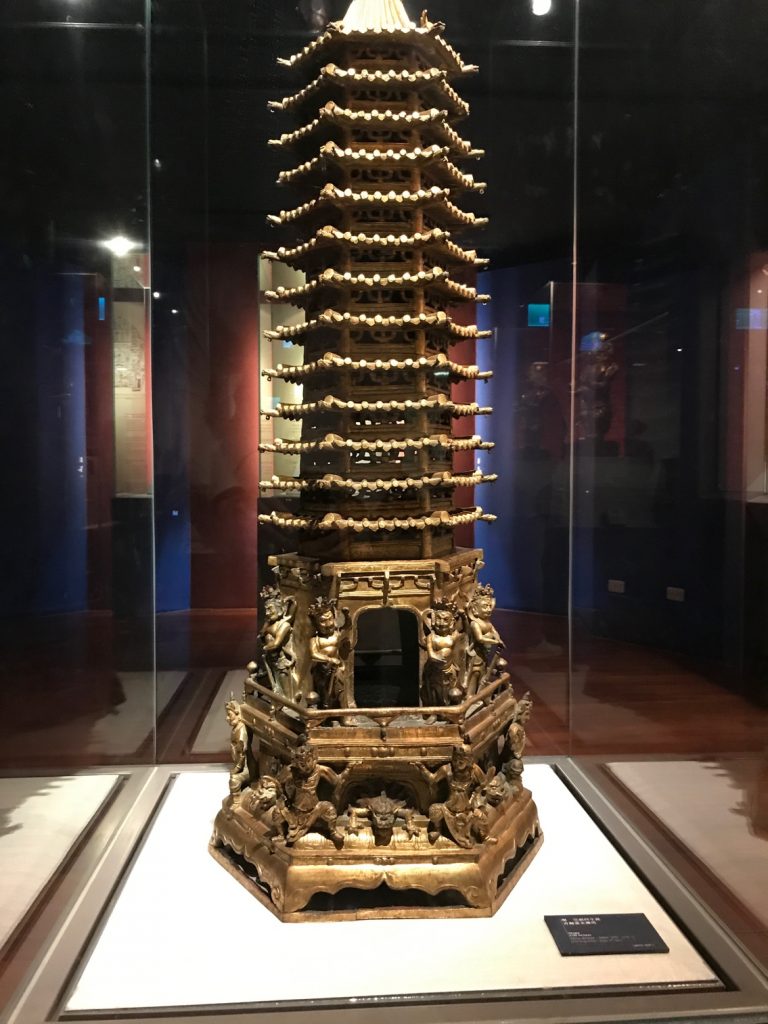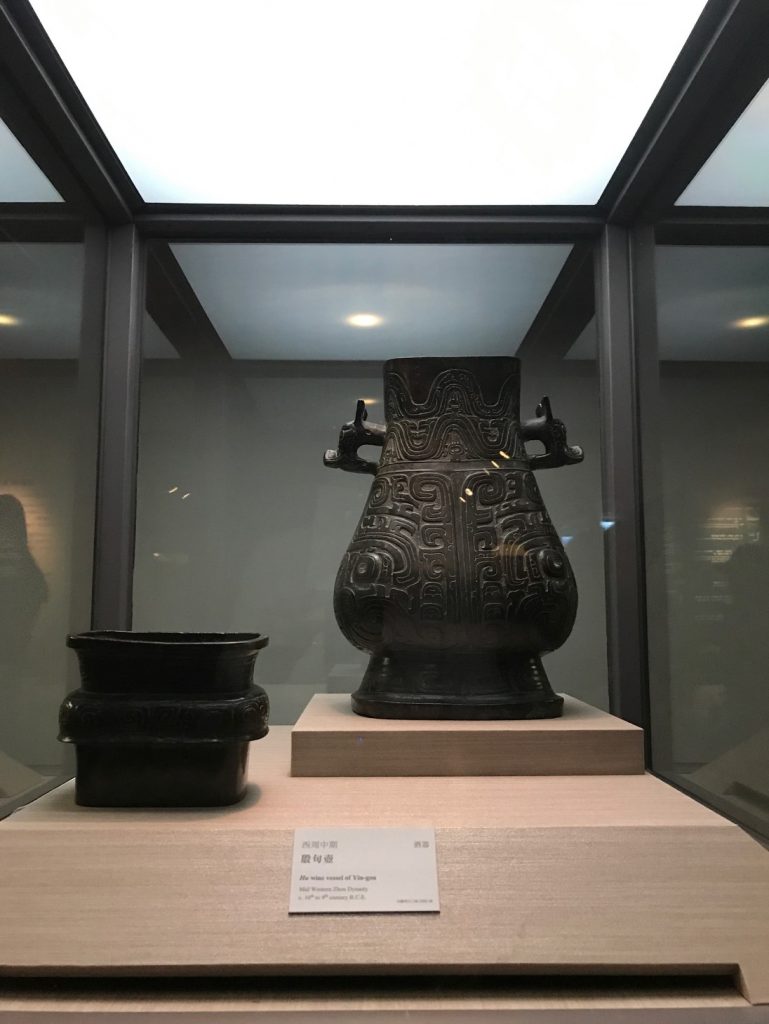Art in China: A Lesson in History and Culture
By Chanrithy Kouch, Foster Undergraduate studying Finance and CISB. Chanrithy is participating in an exchange with NCCU in Taipei, Taiwan.

I’ve always wanted to find out more about the ancient Chinese objects because I grew up watching Chinese films and TV shows. Here I took a class called Art in China at National Chengchi University. The class provides students with a basic view and good level of understanding of what is behind Chinese art. Whether an object is classified as a Chinese art, or perhaps it was just some random painting, it all comes down to the beauty of the art and the meaning behind it.
The professor takes us on field trips to the museum, where we get to look at many rare objects, many from the ancient dynasties of China, such as Shang, Tang, Song, and Qing. The objects were vessels and artifacts that came from ruins, tombs, and the royal palace of ancient China. What I found interesting was that some of the lost dynasty objects are kept in the National Museum of China in Beijing, but some even rarer ones are kept in the National Palace Museum in Taipei. So many tourists from China come here just to see the long-disappeared objects such as paintings that once used to be upheld by the emperor, the diamond sutra which was one of the world’s earliest printed books, and many other artifacts that revealed how early China’s civilization lived and also the concepts behind the main religion in China; Buddhism; plus, the ancient philosophy that every Chinese person today is still following; Confucianism.

I’ve had an amazing time so far with this class, and it is not a class where students just take, so they can go on field trips and not worry about listening to class lectures. It is about learning the history behind another culture and knowing why and how history created itself. It is a class where you can improve your thinking. It will make you a person who can see art in a different way from how normal people look at art. I highly recommend taking Art in China once you come to exchange at NCCU.
